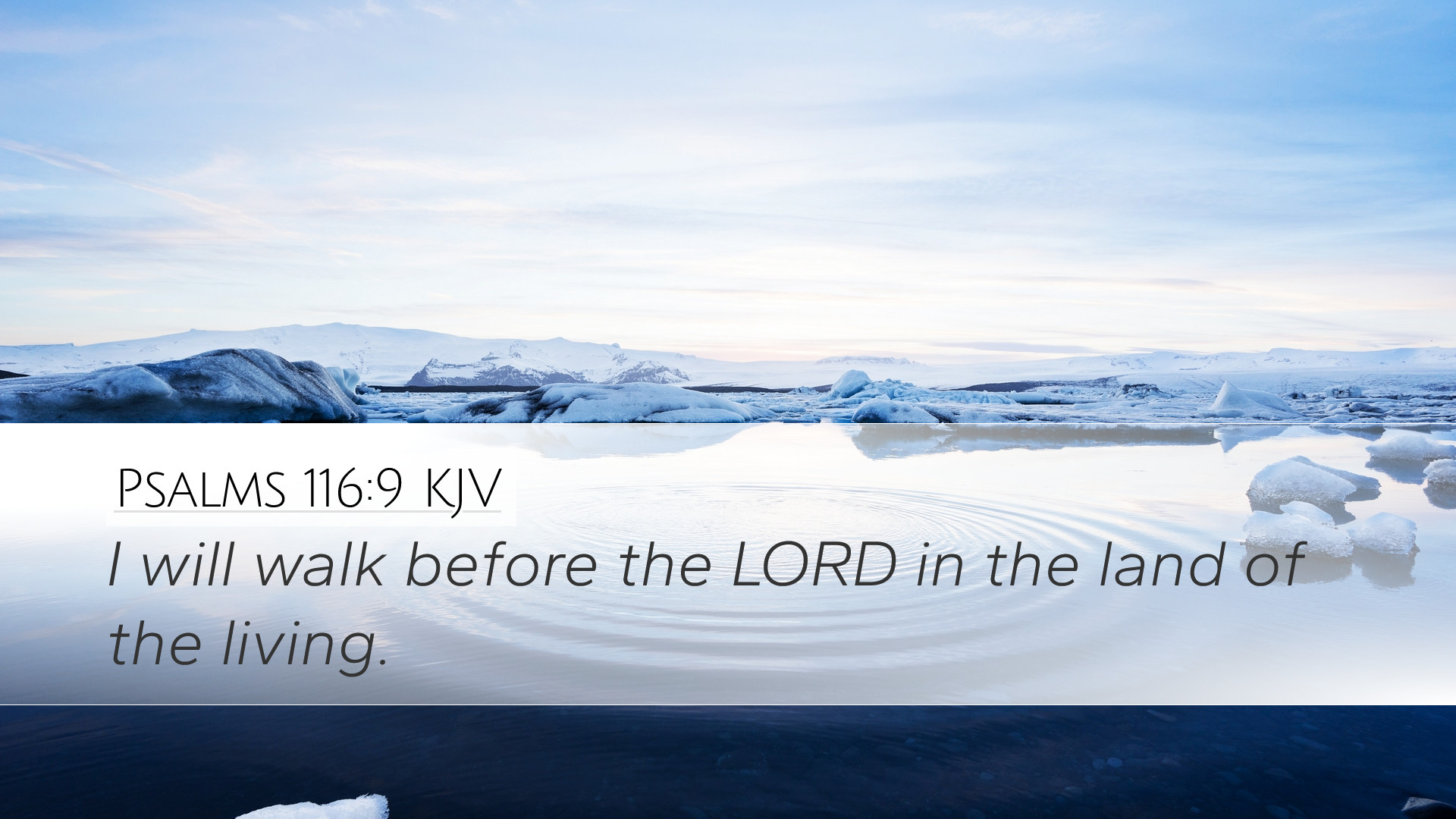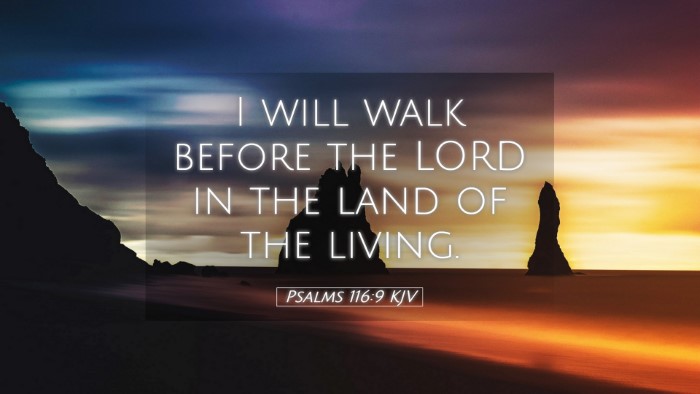Psalms 116:9 - Commentary Summary
Verse: "I will walk before the Lord in the land of the living."
Introduction
The verse from Psalms 116:9 serves as a profound declaration of faith, demonstrating a commitment to live in accordance with God's presence and provisions. Throughout biblical scholarship, this verse is interpreted as an expression of gratitude and a confirmation of the psalmist's faithfulness to God. The insights drawn from public domain commentaries, such as those by Matthew Henry, Albert Barnes, and Adam Clarke, provide a multi-faceted understanding of this verse.
Contextual Background
Psalms 116 is part of the Hallel Psalms, often recited during Jewish festivals. This particular psalm is a song of thanksgiving, reflecting the themes of deliverance and divine mercy. Understanding the historical and cultural context enriches the interpretation of this verse and highlights its significance within the worship practices of the ancient Israelites.
Exegesis of Psalms 116:9
Matthew Henry's Commentary
Matthew Henry emphasizes the personal journey of faith the psalmist embraces. Walking before the Lord symbolizes a life lived in conscious awareness of God's presence. Henry notes that this walk is not only indicative of past experiences of deliverance but also a commitment to ongoing faithfulness in the “land of the living.” This phrase suggests both the physical realm and a spiritual vitality that accompanies a life aligned with God's will.
Albert Barnes' Notes
Albert Barnes underscores the implications of the phrase "in the land of the living." He interprets this as a state of spiritual awareness where the believer recognizes that life is a blessing and that God's mercy enables one to testify to His goodness. Barnes elaborates that the psalmist reveals a determination to live publicly and visibly in a way that reflects one’s allegiance to God, seeing life as an opportunity for service to others and glorification of God.
Adam Clarke's Commentary
Adam Clarke offers insights into the nature of the "walk" mentioned in the verse. He suggests that this is a deliberate action of faith which involves obedience to God's commandments. Clarke implies that to walk before the Lord is to conduct one’s life transparently, acknowledging God’s sovereignty in all circumstances. He emphasizes the importance of this walk within the community of believers, suggesting that it serves as both an example and a witness to others.
Theological Implications
The theological ramifications of Psalms 116:9 extend beyond personal piety. The commitment to “walk before the Lord” advocates for a holistic understanding of faith. It embodies an active engagement with society, emphasizing that the Christian life should reflect God’s ethics and divine love. This verse can encourage believers to cultivate a lifestyle of gratitude, where actions are informed by an acknowledgment of God’s mercy and grace.
Practical Applications
- Living with Intention: Pastors and leaders can emphasize the importance of intentional living for their congregations, encouraging them to reflect on how they walk in their daily lives in the presence of God.
- Community Witness: The aspects of community reflected in this verse suggest opportunities for believers to be witnesses of their faith through service and integrity within their communities.
- Gratitude in Adversity: In times of trouble or uncertainty, the commitment to walk before the Lord can serve as a powerful reminder of hope and resilience, epitomizing trust in God’s promises.
- Discipleship and Mentorship: Following this verse's call to walk in obedience can lead to effective discipleship models, where experienced believers mentor others in the faith journey.
Conclusion
Psalms 116:9 encapsulates a beautiful declaration of a believer’s commitment to live transparently before God in the vibrant reality of the “land of the living.” The combined insights from Matthew Henry, Albert Barnes, and Adam Clarke provide depth and richness to this verse, offering pastoral, spiritual, and practical implications for the life of faith. It is a reminder that every believer is called to a dynamic relationship with God that not only shapes their inner life but also impacts the world around them.


